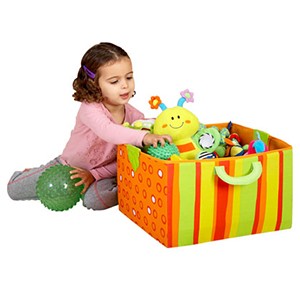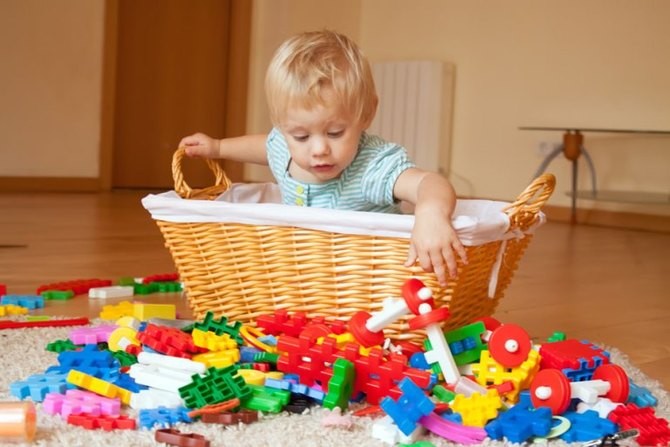Diligence through the game
Given the psychological factors, do not forget about age and accessible gaming methods in order to educate hard work. Using a little imagination, you can teach the child to maintain order without developing negative associations to the cleaning process.
Story-role games
The game is both pleasant and useful for children. You can imagine yourself as building and cleaning equipment that collects garbage (different toys) and sorts them. Clippers can carry dolls to their homes, big cars can collect small ones to their "garage". Vacuum cleaner monster in the event of failure of special equipment to fulfill its task can suck up all the scattered toys, and they will need to be rescued urgently.
Inventions
A creative way to arouse the interest is to come up with useful inventions for cleaning. It can be anything from improvised materials. For example, from an unnecessary cardboard box, you can make a jet plane to collect toys. A carpet-plane, which collects all sorts of little things, can become a piece of cardboard. This method develops creative thinking, broadens the horizon because you need to come up with something new and useful.
Ad Time
Since the cleaning of toys sooner or later turns into a routine duty, you have to invent something non-standard to maintain interest. So, you can announce the time of harvesting specific things. For example, "time is lego" by ringing a bell or whistle - and the child removes the designer. Gradually, such tactics can be brought to the game. For example, prepare a list with a list of things and two cubes. One cube points to the toy category, the other to the number. So, the child throws cubes and performs the task. Not only interesting but also useful - you can thus learn to count. And when such a form gets boring, you can dilute the game with pleasant tasks with cards, such as a somersault on the rings, a minute of rest, etc.
Quest, not an ultimatum
Favorite parental "you will not watch a cartoon until you bring order" can be transformed into a quest exciting for a child.
If there is time - it is better to draw a map of 7-10 stations. The child travels from one station to another and on each one he is met by local residents and gives tasks. The inhabitants of one city need to clean the bottom of the lake (wash the sink), the other - to help harvest (still the same sprinkled lego), the third ask to work in the garden (water the flowers). And at the fourth station, residents can simply treat the traveler with an apple. The ultimate goal of traveling (cartoon) also matters, although most children will be carried away by the process - adventures, the expectation of new encounters.

Family Subbotniks
You can have general family community work day. For example, a general cleaning to do everything together, so that not only mom but all family members are connected. Thus, children will feel part of the cleaning process, not by outside observers. Daily you can take the rule of cleaning 10 minutes before dinner, for example.
Sometimes joint work can temporarily give way to competition. It is convenient for him to hang a sign on the fridge, where everyone will mark washed dishes or garbage. And in a week to sum up and award the winner. Even if adults continue to do everything in the usual way, the excitement of the child is enough for everyone.
Awards
Whatever game you choose, do not forget about the praise and rewards. Of course, the motivation for cleaning for the sake of cartoons or sweets is not pedagogical. The points collected during the cleaning games should be a pleasant trifle - a sticker, an interesting postcard, a children's magazine. The child will be interested in saving and earning these points if he can spend them on something significant, for example, going to a museum or a zoo. The prize can be assigned in advance. And you can write a whole list of different awards with quotations, let the child choose.
Reasonableness in education, about which St. Filaret spoke, should be in the matter of teaching to work. Of course, it's easier for young children to get carried away by the game, and it's necessary to do this because it's better than ultimatums, punishments, and negative associations, coupled with the parents' nerve cells spent. In addition, games develop fantasy and logic, somehow teach system thinking and accuracy. However, children are growing, and the concept of play should gradually be replaced by the concept of responsibility. The order and cleaning of toys, and then personal things, and then the rest of the house should become a responsible business, and, ultimately, children must learn to love work. Let in the early childhood it will be for the sake of points and awards. But growing up, the child will be useful to understand that he is working not only for himself but for others. The sown grains of diligence in childhood will necessarily give good results in the future.

